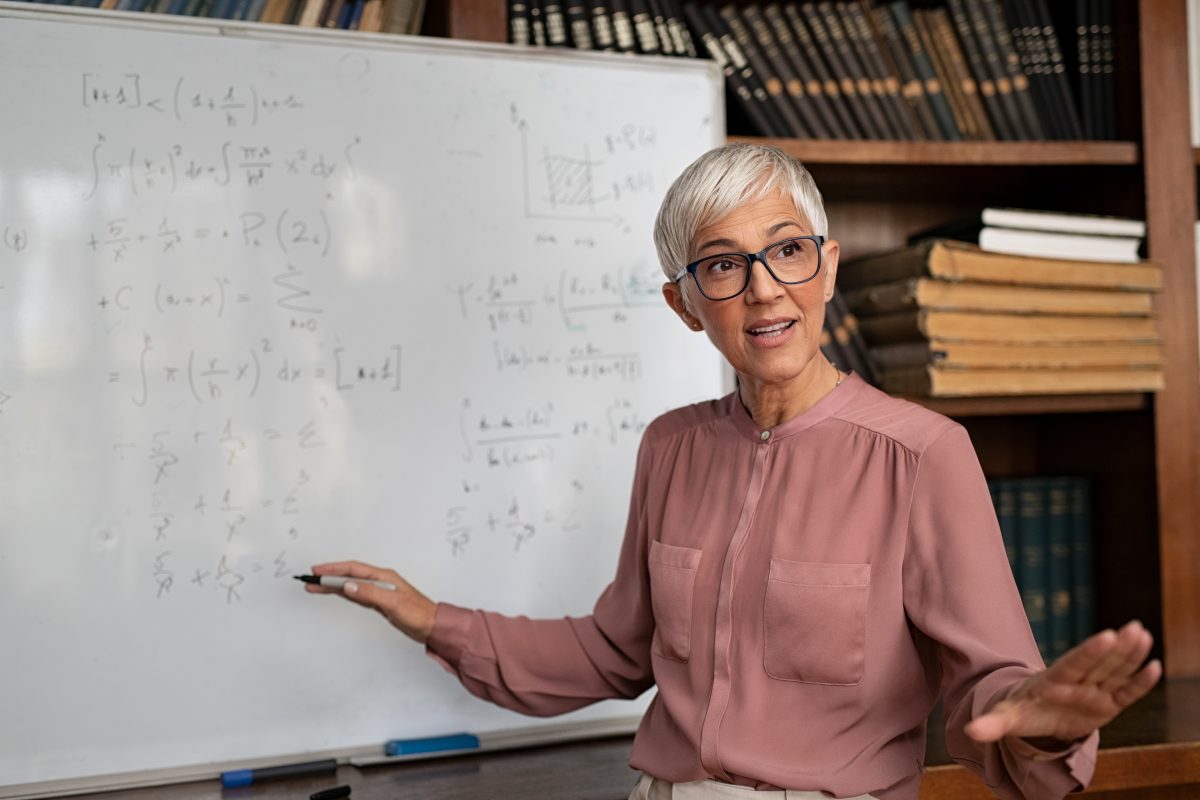How many GCSEs is each Subject worth? (Math, English & Science)
Deciding which GCSE you should take up is an important part of your life. There are several subjects out of which you can take up your GCSE. But before selecting your subject, you must know what is the worth of different GCSEs.
Following are the number of GCSEs for each of the subjects-
| Subject | GCSE according to the type |
| English | Language-1 Literature-1 |
| Maths | 1 |
| Science | Single-1 Double-2 Triple-3 |
Further, we have discussed them in detail.

How many GCSEs in English worth?
English is divided into two courses: English Language and English Literature and is compulsory in nature. You would receive one GCSE for each of these. This means that it will give you two grades for the course. Most of the time you will not have a separate teacher or are not taught two distinct courses. However, you will have to take separate exams for each. Some schools only offer the English language GCSE; if you do this, you will only receive one GCSE. Though, it is more common to take both.
These GCSEs will end in Mid-late June, and you will have to do better in it. If you are unsure about which qualifications you are taking, contact your school. If you are not able to get GCSE results, you can resit them at any age you want to. If you are homeschooled, you must know the worth of the subject so that you choose your subject wisely. However, you must know that when you are homeschooled, you do not need to take up GCSEs.
How many GCSEs in Science are worth?
Whenever you are thinking of taking up a difficult GCSE like Science, you must remember the date of starting and ending the GCSE exams. There are three different types of GCSEs for science. You can take single GCSE, Double GCSE, and Triple GCSE. If you have taken a single GCSE, you will need to take one or more GCSEs in biology, chemistry, or physics. On the other hand, if you take combined science (double and triple GCSE), you will study all three sciences.
In the combined science you will be covering approximately two-thirds of the content of the individual GCSEs in biology, chemistry, and physics. You will get the GCSEs based on the type you choose. For single, double, and triple you will be getting 1, 2, and 3 GCSEs respectively. For the combined science, you must remember that you will be getting a grade after evaluating your performance in all the subjects. Therefore you will be getting either equal or adjacent GCSEs that represent GCSEs are hard in nature.

How many GCSEs is Math worth?
The overall GCSE that you will get is only 1. Though most students and people believe that this should be more of a GCSE. This is because math is double-counted on your school’s attainment 8 or progress 8 scores as it is a core subject. However, there are different math-like options to take up in your GCSE which are statistics and further math. Both statistics and further math can offer you one GCSE each. Thus you must start revising the content of GCSE Maths as soon as possible.
Further math (hardest GCSE and A-level) is a subject that involves a deeper knowledge of mathematics. Please don’t get confused with advanced mathematics. It is because advanced mathematics is a separate free-standing qualification and thus is not even considered a GCSE. If you fail the Exam, you will have to resit for it. You can also resit for GCSE Maths or other GCSEs, even during the university.
How many points are GCSEs worth?
There are different types of tiers for your GCSE exams and based on them you will be getting the maximum grades. However, it is important to get good grades in your GCSE. According to the Department of Education, the average points on a scale of 1-9 needed for getting the GCSE grades are mentioned below in the table-
| GRADE | POINT |
| A* | 8.5 |
| A | 7 |
| B | 5.5 |
| C | 4 |
| D | 3 |
| E | 2 |
| F | 1.5 |
| G | 1 |
| Ungraded | 0 |
How many GCSEs do you get for each subject? – How many GCSEs is each Subject worth?
As already discussed the GCSEs for math, science, and English. Now is the time to discuss the GCSEs for other subjects. Most of the subjects that are offered in the school are 1 GCSE. This means that only science is a subject that can give you at most three GCSEs. Though this is not only the case. Some of the schools may offer you short courses like Short course citizenship. These short courses are generally 0.5 worth. You may take it instead of triple science, which will help you to earn extra qualifications. However, if you want to get the result of GCSE maths, quicker you must take them online. Even if you are taking up IGCSEs, you will get the same number of GCSEs.
Is 11 GCSEs too much?
The maximum GCSEs that you can take up are 16. Although you are required to take up to 10 GCSEs by your school. There are students who take up even 11 GCSEs. Taking up 11 GCSEs is definitely worth it if you can handle the burden of your GCSEs. GCSEs are an important part of your life and you must focus on getting good grades. If you are capable of coping with 10 GCSEs and getting good grades then you can take up 11 GCSEs. This means that taking up 11 GCSEs is not at all tough, however all it depends upon you. You must also remember that your GCSEs never expire and thus must choose accordingly.

How many GCSEs is a BTEC worth?
BTECs are different qualifications than GCSEs. It is very difficult to compare both qualifications. The BTEC qualification is generally more practical than the GCSE. Usually, a level 1 or 2 BTEC is taken along with the GCSE. Generally, a 2-level BTEC is equal to 7 at GCSE. However, it is difficult to compare GCSEs for BTEC. But you should remember that if you are taking up GCSEs, you must revise them before the starting time. Further, you must also know that if you are unable to take both qualifications, you can still get a high-paying job.
Why are GCSEs important?
Your GCSE results are usually a good predictor of how well you’ll do in A-level or other advanced studies. In fact, they’re the only real hard-and-fast evidence of your academic abilities. The sixth form you attend is determined by your GCSE results. When you will get your GCSE result, you will see P1 and P2 grades for it.
The qualifications you will be pursuing after completing your GCSEs are determined by them. Whatever subject you want to study, the majority of university courses require at least a grade of 4 or 5. GCSEs are also used to determine eligibility for a university course. You must also take the results from your school so that you can easily apply to your A-levels. However, there are GCSE mocks that will help you to score high in your final GCSEs.
Conclusion
Deciding which GCSE you must choose is a very tough choice. Taking up the wrong GCSE may affect your future studies as well. Thus it is important to take up the right GCSEs for yourself. The three most common GCSEs that almost every student takes up are Science, Maths, and English. It is very important to know the worth of all three subjects. English has further two subjects – English literature and English language which are worth 1 GCSE each. Science can give you up to 3 GCSEs depending on the type of subject you have taken. However, if we talk about math you can get only 1 GCSE for it.


